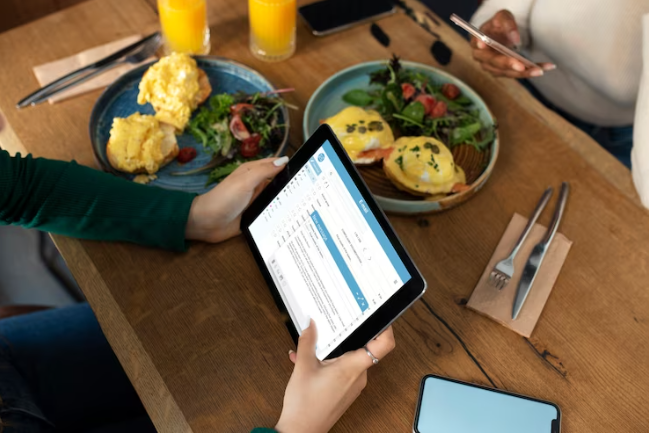Are you a restaurant owner or manager looking to improve your business and ensure its long-term success? One of the most important aspects to consider is your relationship with your restaurant suppliers. Reliable suppliers can provide the high-quality ingredients and materials you need to create delicious dishes, while also helping you save money and improve overall efficiency. Building strong relationships with your suppliers is crucial to achieving these goals.
By taking the time to understand each other’s needs and expectations, communicating effectively, and valuing the insights your suppliers can offer, you can establish a mutually beneficial partnership that will drive your restaurant’s success.
In this article, we will explore the importance of strong supplier relationships in the restaurant industry, and provide practical tips for building and maintaining these relationships for better quality, cost savings, and overall business success.
So, let’s dive in and learn how to build strong relationships with your restaurant suppliers.

Importance of Reliable Suppliers for Restaurant Success
Without reliable suppliers, a restaurant’s success can quickly crumble due to inconsistent quality and availability of ingredients. That’s why selecting the right suppliers is crucial for any restaurant business.
When choosing suppliers, it’s important to consider their sustainability practices. Today’s consumers are becoming more environmentally conscious and want to support businesses that share their values. So, working with suppliers that practice eco-friendly methods can attract more customers and improve your restaurant’s reputation.
In addition to sustainability practices, you should also consider the quality and reliability of your suppliers. The last thing you want is to run out of a key ingredient during a busy night or receive a shipment of spoiled produce. By working with trusted and dependable suppliers, you can ensure that your restaurant always has the ingredients it needs to create delicious, consistent meals.
In the end, building strong relationships with your suppliers is essential to the success of your restaurant. So, take the time to carefully choose your suppliers and maintain open communication with them to ensure a steady supply of high-quality ingredients.
Understanding Each Other’s Needs and Expectations
By openly communicating and actively listening to one another, we can ensure that our partnerships with suppliers meet our mutual needs and expectations. Building a strong relationship with your restaurant suppliers requires mutual trust and transparency.
You need to be able to rely on your suppliers to deliver the goods you need, when you need them, and at the quality level you require. In turn, suppliers need to be able to trust that you’ll pay them on time, provide accurate forecasts, and communicate any changes in your needs or preferences.
Balancing costs and quality is essential when working with restaurant suppliers. In order to get the best value for your money, you need to negotiate prices and terms that work for both parties. However, it’s important to remember that quality can’t be sacrificed for the sake of cost savings.
Your customers expect fresh, high-quality ingredients, and you can’t afford to disappoint them. By understanding each other’s needs and expectations, you can work together to strike the right balance between cost and quality, ensuring a successful partnership for years to come.
Communication as Key to Building Strong Relationships
Effective communication is like a bridge that connects two entities, allowing them to understand each other’s needs and expectations and build a successful partnership. When it comes to building strong relationships with restaurant suppliers, communication is key.
Active listening is essential in understanding what your supplier is saying, as well as what they’re not saying. Clear expectations must also be communicated to avoid any misunderstandings or miscommunications. This means being transparent about your needs and requirements, and listening to what your supplier has to say about their capabilities and limitations.
Another important aspect of communication is conflict resolution and trust building. When conflicts arise, it’s important to communicate openly and honestly to find a solution that works for both parties. This builds trust and strengthens the relationship between you and your supplier.
Also, regularly checking in with your supplier and providing feedback can help to strengthen your relationship and ensure that both parties are on the same page. By prioritizing effective communication, you can build strong and lasting relationships with your restaurant suppliers.
Valuable Insights from Suppliers for Better Business Decisions
You can gain valuable insights from your suppliers that will help you make better business decisions, giving you an edge over your competition. Collaborative decision making with your suppliers can give you access to their expertise and knowledge of the industry, which can be invaluable.
By working together with them, you can identify opportunities for cost savings, improvements in product quality, and new menu offerings that will appeal to your customers. Leveraging supplier expertise can also help you stay ahead of emerging trends and changes in the market.
Your suppliers can provide you with information about new products and innovations, as well as changes in consumer preferences. By staying informed and making informed decisions based on this information, you can keep your menu fresh and up-to-date, and attract and retain customers who are looking for new and innovative dining experiences.
By building strong relationships with your suppliers, you can create a win-win situation where both parties benefit from each other’s expertise and knowledge.
Benefits of Strong Supplier Relationships for Quality and Cost Savings
Maximizing the potential of your supplier connections can lead to significant improvements in the quality of your products and cost savings for your business. Collaborative partnerships between you and your suppliers can result in better communication and understanding of each other’s needs.
When suppliers feel valued and appreciated, they’re more likely to work closely with you to meet your requirements and help you achieve your business goals. This kind of partnership can lead to long term loyalty and trust between your business and your suppliers.
Building strong relationships with your suppliers can help you save costs in the long run. When suppliers understand your needs and are invested in your success, they’re more likely to offer you better prices and deals.
They may also be willing to work with you to improve their own processes, which can lead to cost savings for both parties. Additionally, strong supplier relationships can lead to faster delivery times, which can help you get your products to market more quickly and efficiently.
Overall, investing in strong supplier relationships can lead to significant benefits for your business.
Frequently Asked Questions
How can a restaurant owner determine if a supplier is reliable and trustworthy?
To evaluate a supplier’s reliability and trustworthiness, look for red flags during the selection process. Check references, ask about their quality control processes, and ensure they have proper certifications.
What are some common challenges that arise in supplier-restaurant relationships and how can they be addressed?
To maintain good supplier-restaurant relationships, effective communication and timely payments are key. Common challenges such as late deliveries or quality issues can be resolved through open communication and addressing the issue promptly.
How can a restaurant effectively negotiate prices and terms with their suppliers?
To negotiate prices and terms with suppliers, focus on building a diverse supplier base and utilizing negotiation tactics like asking for volume discounts or offering long-term commitments. Don’t be afraid to walk away if terms aren’t favorable.
What are some strategies for maintaining strong relationships with suppliers over the long-term?
To maintain strong relationships with suppliers, prioritize supplier communication and express gratitude for their partnership. Consider implementing loyalty programs to incentivize continued business.
How can a restaurant effectively manage their inventory and ordering process to minimize waste and maximize efficiency in their relationship with suppliers?
To minimize waste and maximize efficiency in your relationship with suppliers, use inventory management software to track orders and stock levels. This allows you to order only what you need, reducing waste and keeping your supply chain running smoothly.
Conclusion
Congratulations on taking the time to learn about building strong relationships with your restaurant suppliers! By understanding each other’s needs and expectations and maintaining open communication, you can create a partnership that benefits both parties.
Your suppliers can provide valuable insights that can help you make better business decisions and ultimately improve your restaurant’s success.
In addition to improved communication and decision-making, strong supplier relationships can also lead to quality and cost savings. By working closely with your suppliers, you can ensure that you are receiving the best products at the best prices, allowing you to provide your customers with high-quality dishes while also maximizing your profitability.
So, take the time to invest in your supplier relationships, and watch your restaurant thrive!



